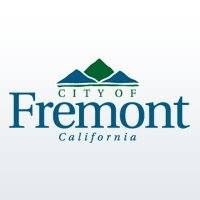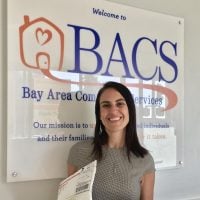City of Fremont Youth and Family Services
Drug Rehab Center in Fremont, California
The City of Fremont Youth and Family Services is an accredited addiction treatment facility in Fremont, California, providing personalized, evidence-based care for individuals with alcoholism, dual diagnosis, and drug addiction.
About City of Fremont Youth and Family Services in California
Located in Fremont, California, City of Fremont Youth and Family Services is a reputable alcoholism, dual diagnosis, and drug addiction treatment facility. This facility is accredited by the Substance Abuse and Mental Health Services Administration (SAMHSA), ensuring high-quality care and professional standards. City of Fremont Youth and Family Services offers a variety of services to individuals suffering from alcoholism, dual diagnosis, and drug addiction, including aftercare support, drug rehab, dual-diagnosis treatment, and outpatient levels of care. With a strong focus on providing comprehensive and effective treatment, City of Fremont Youth and Family Services is dedicated to helping individuals overcome their substance abuse issues and achieve long-term recovery.
City of Fremont Youth and Family Services provides a range of services for individuals struggling with addiction and substance abuse. Their aftercare support ensures that individuals receive ongoing support and guidance even after completing their initial treatment programs. Additionally, the facility offers drug rehab services to assist individuals in the recovery process. City of Fremont Youth and Family Services also specializes in dual-diagnosis treatment, addressing both mental health and substance abuse disorders concurrently. Lastly, the facility offers outpatient levels of care, allowing individuals to receive treatment while still maintaining their daily routines and responsibilities. With a comprehensive approach to addiction and substance abuse treatment, City of Fremont Youth and Family Services is committed to providing the support and resources necessary for individuals to overcome their challenges and live a healthier life.
Genders
Ages
Modality
Additional
Accreditations
SAMHSA
Conditions and Issues Treated
Dual Diagnosis therapy is considered more successful than traditional rehab methods because it treats the addiction and the underlying mental health disorder simultaneously. This comprehensive approach gives Fremont, CA patients the best chance for long-term recovery. If the patient does not receive treatment for both conditions, they are more likely to relapse.
Levels of Care Offered
This center offers a variety of custom treatment tailored to individual recovery. Currently available are Aftercare Support, Drug Rehab, Dual-Diagnosis, Outpatient, with additional therapies available as listed below.
Outpatient treatment consists of counseling and therapy sessions. The outpatient treatment process begins with the addict’s initial detox period, lasting about ten days. Outpatient treatment is used for those who are at moderate risk for “slipping back” into the addiction. It is also used for those who are not currently experiencing any side effects from withdrawal, can handle social pressure, have a stable living environment, and have a good support system.
Aftercare support is often overlooked in the treatment of drug and alcohol addiction. However, it’s an essential part and should be considered when planning a course of rehab.
Aftercare is a term that’s used to refer to any sort of continuing care offered for a drug addict who has voluntarily entered a rehabilitation program. This type of care can be provided in several settings, including outpatient therapy sessions after the addict has completed an inpatient program. There are also 12-step support groups, such as Alcoholics Anonymous, which can provide additional help for addicts trying to stay sober.
Aftercare is vital because addicts often face many challenges as they attempt to recover from drug addiction or alcoholism. Because of the powerful nature of these addictions, those who struggle with a drug or alcohol problem will likely have to face the craving for their substance of choice for the rest of their lives. Recovering can be a lonely and frustrating endeavor, especially without the support of others who are going through similar situations.
Therapies & Programs
Individual Therapy is a crucial component of addiction recovery. Therapists work with patients to identify the root of their addiction and figure out how to better handle the issues that led to them using drugs. Individual Therapy is one on one sessions where people meet with their therapist. Individual therapy provides a safe space for people to open up and discuss personal and sensitive topics which they may not feel comfortable discussing in a group setting.
In this type of therapy, therapists can develop specific solutions for each patient, which helps speed up their recovery process. In addiction recovery, therapy is a crucial part. It allows patients to go deep into their core issues and discover how those problems can be better handled now. Therapy can be performed in individual sessions as well as group settings. In individual therapy for addiction, the patient meets with the therapist one-on-one to focus on the underlying issues of addiction and come up with solutions to prevent future abuse.
Family therapy is a crucial part of drug treatment and getting sober. It is one of the most effective ways to help addicts stay on the path to long-term sobriety. One of the most important parts of family therapy is the relapse prevention plan. During treatment, therapists and doctors will often sit down with the addict and their family to develop a plan if the addict ever feels like they want to use again. This plan should involve steps the addict and family can take together to prevent them from relapsing in the future.
An addict’s family can play a vital part in helping them to avoid relapse because they can spot the warning signs and help them get back on track before it becomes too much of a problem. Family therapy is one of the most effective ways to help addicts stay on the path to long-term sobriety.
Group Therapy is employed by drug treatment centers like City of Fremont Youth and Family Services to provide the recovering addict with a platform to talk about their feelings and experiences. It also provides for an opportunity to learn from other addicts who have successfully overcome their addiction. It is recommended that all group members be recovering addicts for this type of therapy to work.
This type of therapy involves the use of a variety of therapeutic techniques to help addicts recover from past traumas that might have triggered their substance abuse. During these sessions, therapists will work with the addict to address painful memories and learn how to cope effectively with stressors as they arise.
During these types of sessions, therapists will typically focus on three main goals:
- Identifying and expressing painful emotions associated with past traumas.
- Reducing the effects of stress on an addict’s life by developing more effective coping mechanisms.
- Developing healthy ways of thinking about stressful situations that can help addicts avoid substance abuse issues in the future.
This type of therapy is typically used in conjunction with other types of addiction treatment services. By identifying and dealing with the root cause of addiction, most addicts can overcome their cravings and prevent relapse once they leave rehab.
Many different types of addiction treatment services exist to help addicts safely get sober, but it’s important for recovering individuals to find a therapist or support group that will help them address the root cause of their addiction.
Dialectical behavior therapy (DBT) is a type of cognitive behavioral therapy that is focused on helping those with problematic behaviors caused by intense emotions and thoughts control and regulate their emotions and behavior.
Dialectic Behavior Therapy is beneficial for:
- People who have chronic suicidal thoughts and behaviors
- People who have chronic drug cravings
- People who have difficulty establishing and maintaining personal relationships
- People who have a mental disorder such as Borderline Personality Disorder
- People who have experienced trauma in their life
Cognitive Behavioral Therapy (CBT) is an approach and method in psychotherapy. City of Fremont Youth and Family Services asks people to investigate how their thoughts, including habitual, harmful, and inaccurate ways of thinking, affect behaviors. CBT is based on the idea that rigid, inflexible ways of thinking cause people to have a limited ability to cope with stress, which leads to emotional distress.
Likewise, CBT helps people identify maladaptive behaviors and replace them with more positive behaviors. It makes you look at the way you perceive something and ask: Is this a realistic belief? CBT asks people to look at the role of behaviors and emotional responses and how they may be distressing in one’s life. The goal of CBT is to change the way people think and behave to achieve a more balanced, healthier lifestyle.
Moreover, CBT has been shown to reduce some types of anxiety disorders, depression, and symptoms related to thoughts or actions that are considered harmful.
Life Skills Services provide services aimed at helping people enter into and maintain long-term sobriety. The services are offered at varying levels of intensity, specific to the needs and requirements of each patient. Some benefits of these services are restoring hope and empowerment, enhancing family involvement, increasing patient compliance, and reducing relapse rates.
Training someone on improved life skills allows someone recovering from an addiction to feel more capable of taking care of him or herself. The skills taught in City of Fremont Youth and Family Services are daily skills that give a better recovery foundation by simply giving the person tools they need to survive.
Payment Options Accepted
For specific insurance or payment methods please contact us.
Additional Details
Specifics, location, and helpful extra information.
Fremont, California 94538 Phone Number(510) 574-2100 Meta DetailsUpdated November 25, 2023
Staff Verified
City of Fremont Youth and Family Services Patient Reviews
There are no reviews yet. Be the first one to write one.
Fremont, California Addiction Information
More than 3 million of California's citizens are addicted to illegal drugs. Almost 800,000 people use hard drugs, almost 5 million use marijuana, and another 2.1 million abuse alcohol every year. Other substance abuse issues such as binge drinking and teen drug use are also common. Many illegal drugs such as cocaine, heroin, methamphetamine, and marijuana are smuggled into the state from Mexico.
153 drug overdose deaths occurred in the Fremont area in 2016. Methamphetamine is also a major problem in Fremont. The city has a drug abuse rate of roughly 15%, and it is the 13th most dangerous city in America. Around 9.4% of Fremont residents 12 years or older reported using illicit drugs. To find a drug treatment facility in Fremont ask your doctor for a referral. You can also search online.
Treatment in Nearby Cities
- Lompoc, CA (218.7 mi.)
- Lake Forest, CA (362.3 mi.)
- Rancho Cucamonga, CA (342.5 mi.)
- Morgan Hill, CA (34.2 mi.)
- Scotts Valley, CA (34.6 mi.)
Centers near City of Fremont Youth and Family Services
The facility name, logo and brand are the property and registered trademarks of City of Fremont Youth and Family Services, and are being used for identification and informational purposes only. Use of these names, logos and brands shall not imply endorsement. RehabNow.org is not affiliated with or sponsored by City of Fremont Youth and Family Services.





